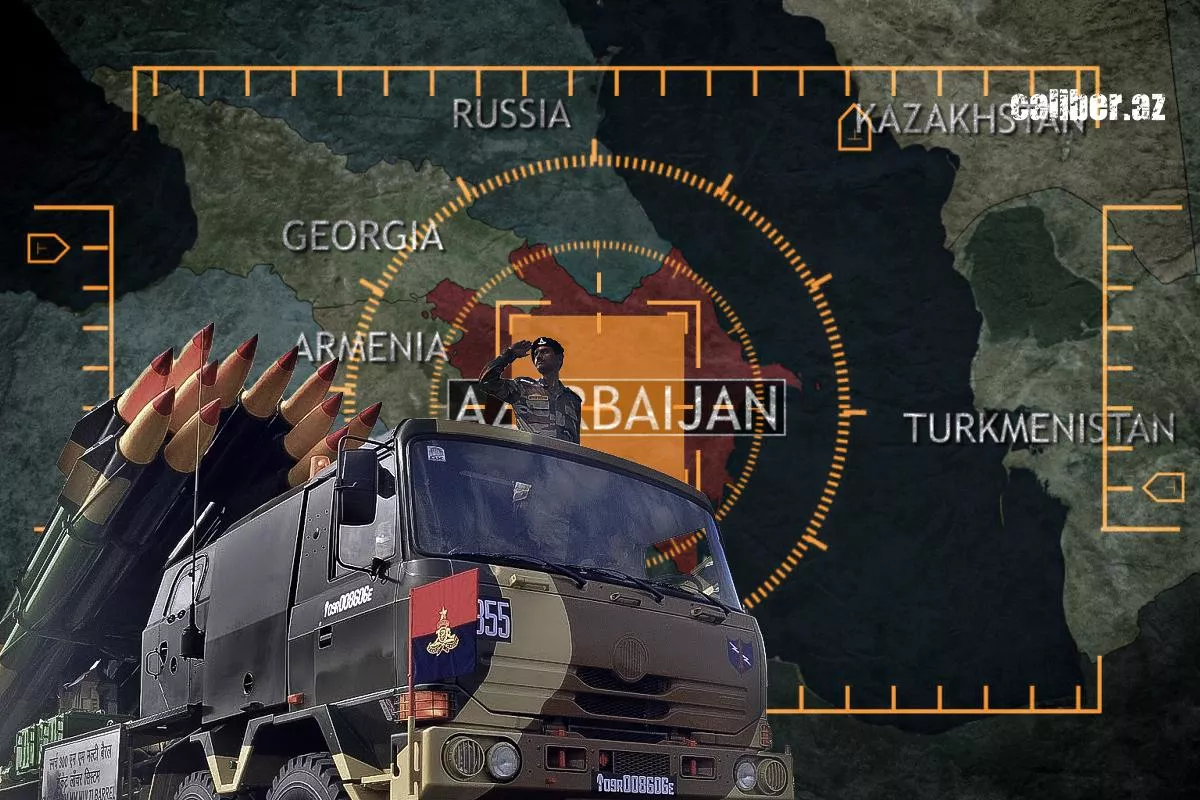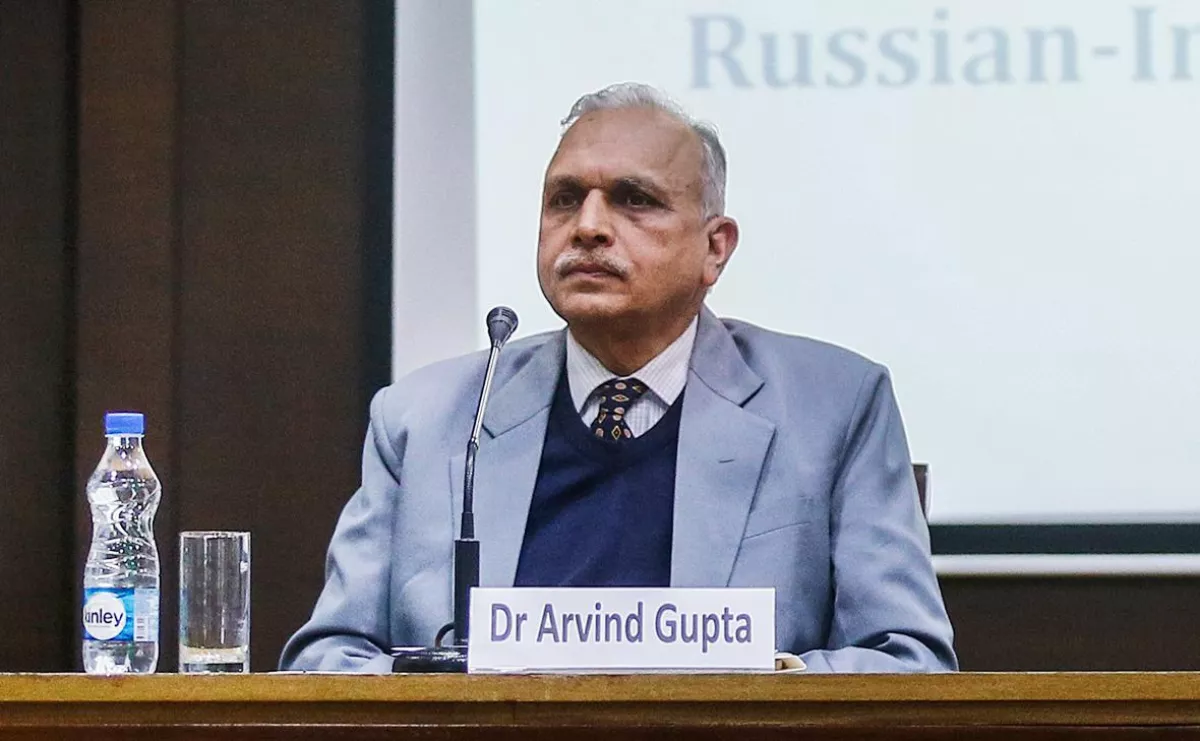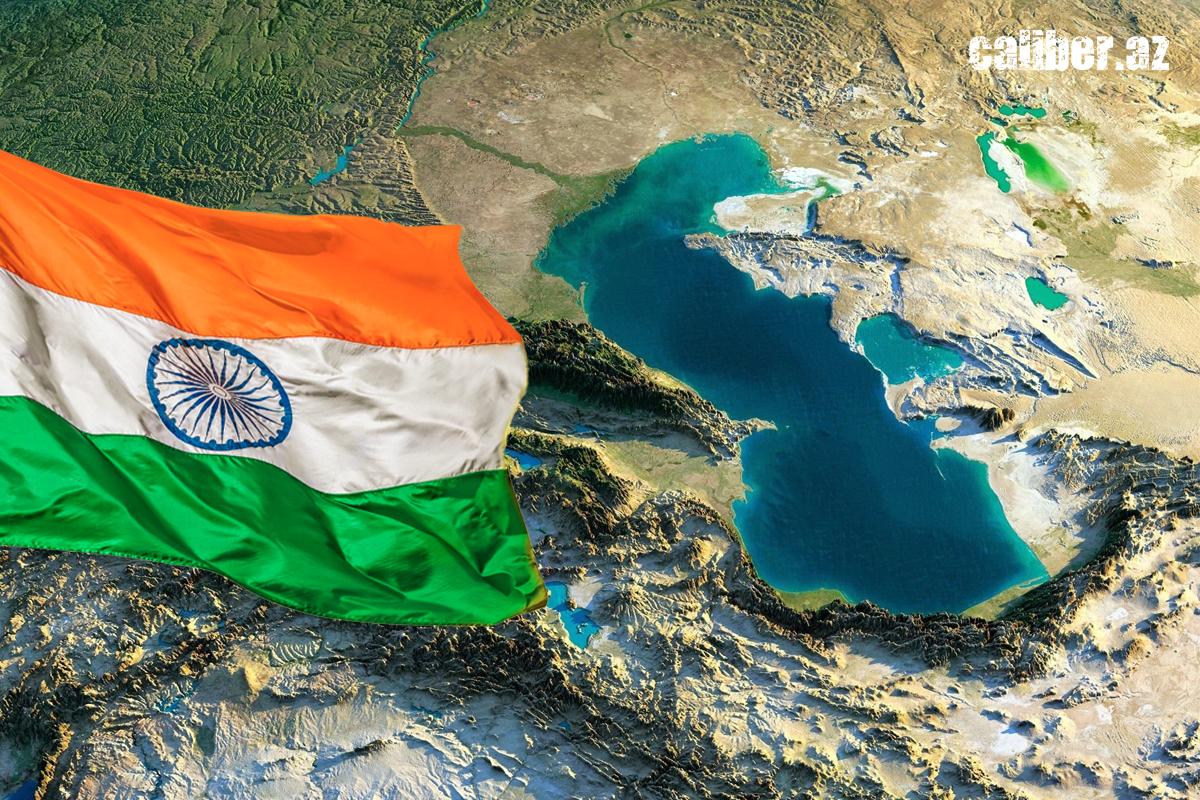Indian misstep in the South Caucasus New Delhi’s confrontation vs Baku’s pragmatism
In recent years, relations between India and Azerbaijan have been marked by clear tension, the causes of which lie not in objective contradictions but in the political-emotional sphere. New Delhi allowed emotions and stereotypes to override pragmatism, leading to a weakening of its position in Eurasia.
There is no need to look far for examples. During Azerbaijan’s chairmanship of the Non-Aligned Movement, India covertly undermined Azerbaijan. In particular, the Indian and Bhutanese delegations obstructed the adoption of a solidarity declaration following the attack on the Azerbaijani embassy in London. India also opposed the creation of a Youth Organisation uniting young people from Non-Aligned Movement member countries. In 2022, New Delhi objected to inviting Baku to the BRICS summit.
At the same time, Baku could not ignore the intensified arming of Armenia with Indian weapons. Between 2022 and 2023 alone, Armenia signed defence contracts with India worth over $1.5 billion. During this period, Yerevan concluded a series of agreements to procure Indian 214-mm Pinaka multiple launch rocket systems, 155-mm ATAGS artillery systems, ZADS counter-drone systems, Akash-1S air defence systems, as well as Konkurs anti-tank missile systems (produced under Russian licence), mortars, and various types of ammunition.

Finally, one last point: it was India that opposed Azerbaijan’s membership in this regional organisation at the Shanghai Cooperation Organisation (SCO) summit held in the Chinese city of Tianjin.
It is important to note that India’s destructive behaviour towards Azerbaijan shows no clear logic. Baku has no significant interests in India, and Azerbaijan’s alliance with Pakistan should not concern New Delhi, as it is not directed against any third party. Nevertheless, in recent years, India’s foreign policy has clearly exhibited a negative stance toward Baku, manifested both in support for Armenia against Azerbaijan and in covert anti-Azerbaijani activity within several international organisations.
However, in light of the tectonic shifts in the South Caucasus—particularly the normalisation of Armenian-Azerbaijani relations and the establishment of interregional transport communications—India seems to be beginning to understand that its interests in the Caspian and Black Sea regions can only be secured through close cooperation with Baku and Ankara. So far, this understanding appears to exist only at the expert level. This is indicated by a detailed article on the website of the Vivekananda International Foundation—an Indian think tank specialising in international politics. Notably, the article was authored by Arvind Gupta, the foundation’s director.

In his article, Gupta openly calls on New Delhi to reconsider its confrontational stance towards Azerbaijan.
“India needs to take note of the transformative changes taking place in the Eurasian region, particularly in Central Asia and the Caucasus. Eurasia is critical to India's prosperity and stability. China has made deep inroads into the region, and Pakistan is making strenuous efforts to enhance its engagement in the region.
India has historical and cultural ties with the Eurasian region, stretching back to several millennia. Although India has taken some steps to deepen its engagement with Central Asia, the results have been underwhelming. Partly, this is due to the lack of connectivity between India and Central Asia. The relaxation of tensions, the return of peace in the South Caucasus region and the strengthening of the Middle Corridor will change the Central Asian and Caucasian landscape. Presently, India has not-so-good relations with Türkiye and Azerbaijan. But India should realise that both countries have rising profiles and growing influence. India has minimal engagement with Türkiye and Azerbaijan. Both are perceived in India as pro-Pakistan. But that should stop India from engaging more deeply with them. In fact, this should spur India to use its economic strengths and soft power to correct the imbalance.
India needs to have a fresh look at its Eurasia policy, work towards greater engagement with the countries in the region, build new agendas, and go beyond the traditional issues. Absence of meaningful engagement will only leave the field open to China and Pakistan in the region to India’s detriment.
India should play according to the terrain in Eurasia. It must play an active role in strengthening the International North South Transport Corridor, the Chabahar Port and its hinterland. India will have to work closely with Iran, Azerbaijan and Russia through which the INSTC passes. Chabahar provides access to Afghanistan and Central Asia. India must engage more and invest more in these countries,” Gupta wrote.
He draws attention to the lack of political contacts between India and Azerbaijan.
“There have not been any bilateral high-level visits for a long time, even though people-to-people contacts seem to be doing well. As per official data, Azerbaijan attracts a large number of Indian tourists (243,589 in 2024; India ranked as the 3rd largest source of inbound tourists after Russia and Türkiye), and there are direct flights between Delhi and Baku and between Mumbai and Baku. Several Indian films have been shot in Azerbaijan in recent years. Nearly 1500 Indian nationals are living and working in Azerbaijan. The Indian oil company ONGC Videsh has invested USD 1.2 billion in the Azeri–Chirag–Gunashli (ACG) oil fields in Azerbaijan and in the Baku-Tbilisi-Ceyhan oil pipeline. The bilateral trade is about 1 billion USD. In 2023, India purchased around USD 944 million worth of crude oil, becoming the third largest buyer of Azerbaijan’s crude oil [...]
There is a need to repair relations with Türkiye and Azerbaijan despite some outstanding issues. The formal and informal channels of communication should be opened. Long-stalled foreign office-level consultations should be resumed. Joint commissions and other institutional mechanisms must become active. New institutions for new agendas should be set up. Senior officials, including the EAM, should consider meeting their counterparts through bilateral visits and on the sidelines of important meetings. Resumption of the engagement process with Türkiye and Azerbaijan would result in a better understanding of the emerging trends and send out a positive signal in the Eurasian region that India is interested in meaningful engagements and positive agendas,” wrote the director of the Vivekananda International Foundation.

Thus, as we can see, at the expert level in India, there is a growing recognition that New Delhi’s previous policy towards Azerbaijan and Türkiye has reached a dead end and could result in India being excluded from key Eurasian processes, losing strategic opportunities in a region that is becoming a new geopolitical axis of the 21st century.
All the more so, Baku has not succumbed to India’s provocations. Azerbaijani observers follow India’s anti-Azerbaijani policies calmly and without excessive emotion. Azerbaijan operates on the principle that diplomacy is a realm of interests, not grievances. Hence the deliberately measured reaction to all attacks from the Indian press and politicians. There is no desire in the Azerbaijani approach to prove anything. This stance is rooted in confidence in its own position and the understanding that time works in Azerbaijan’s favour. Today, the South Caucasus is no longer a theatre of conflict—it is becoming a space for cooperation, trade, and transit. Azerbaijan has become the main initiator and driving force behind new logistics projects, such as the Middle Corridor linking Europe and Asia, as well as large-scale initiatives within the framework of the International North–South Transport Corridor.
These projects are shaping a new economic architecture for Eurasia. To ignore Baku today is to exclude oneself from the future. Indian analytical thought appears to be finally arriving at this understanding. All the more so since Armenia, on which the Modi government has bet, is objectively incapable of compensating for the loss of ties with Azerbaijan. Neither geographically, nor in terms of resources, nor in terms of communications, can it serve as India’s bridge to Eurasia. On the contrary, the key to Eurasian routes lies precisely through Azerbaijan. Without Baku’s participation, it will be difficult—if not impossible—for India to realise its own transport and economic ambitions.
Indian diplomacy faces a choice: to continue a confrontational policy or to recognise the changed reality. Today, it can be confidently stated that India’s anti-Azerbaijani stance, built on illusions and political emotions, has run its course. The new Eurasia is a space of pragmatism, logistics, and mutual benefit. If India truly wants to be part of this space, it will have to learn to view Azerbaijan not through the prism of others’ conflicts, but through the prism of its own interests. Baku is ready for such a shift. Moreover, Azerbaijan has repeatedly demonstrated that it is prepared for dialogue, provided it is based on mutual respect and common sense.
Ultimately, time will judge everyone. But already it is clear: in the new geopolitical reality of Eurasia, those who thrive are not those who take offence, but those who build. Azerbaijan is building—and that says it all.








